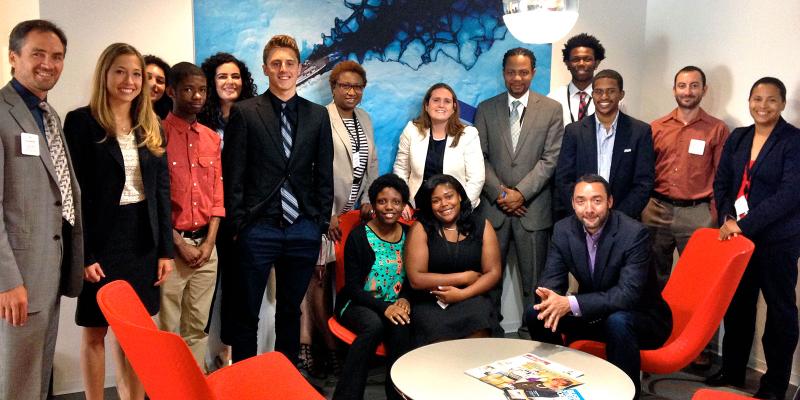Through our Jobs of Tomorrow investment framework, we have raised more than $250,000 to date to give workers the essential skills they need to succeed in an ever changing world.
We have committed to invest a half million dollars in high-performing organizations in the National Capital region that equip low-income people with the skills to secure jobs with a future. This also improves the talent pipeline for our region’s economy.
The organizations we invest in provide critical skills for technology and modern jobs that represent the most promising pathways out of poverty.
The Modern Workplace
The workplace is experiencing a time of great transition. Globalization and technological innovation, particularly the adoption of automation and artificial intelligence (AI), have caused the working world to change in fundamental ways. According to a May 2018 McKinsey & Company Discussion Paper, demand for technological, social, emotional and higher-level cognitive skills is predicted to rise by 2030. This increased demand is creating real opportunities for workers to grow and thrive. For instance, the demand for emotional skills is expected to incentivize the development of emotional intelligence, a core building block for a life of meaning and contribution.
At the same time, the wages of America’s workers—especially those without college degrees—have stagnated for decades now, with too little of private-sector productivity growth being shared with them. In fact, the stagnation in the living standards of ordinary American workers, along with massively growing inequality in wages and incomes, ultimately threatens the legitimacy of our private market system and the stability of our politics.
Pathways to good jobs
In January 2018, The U.S. Partnership on Mobility from Poverty identified an underemphasized approach for increasing the availability of high-quality jobs and improving access to them: improving pathways to good jobs, including education and skills training.
The Partnership found that the quality of technical schools, community colleges, online courses, apprenticeships or internships, and for-profit schools varies enormously, professional networks are limited, and the consequences of various postsecondary choices are mostly unknown to job seekers. To dramatically increase mobility from poverty, the Partnership recommended we significantly improve the effectiveness of these programs and institutions to ensure that more of our nation’s young people can successfully pursue a career.
Intervention points
We are monitoring intervention points carefully. At Lever Fund, we are targeting these types of interventions for youth and adults in our Jobs of Tomorrow campaign. Here's what we know so far:
- Findings from the Social Genome Model Project, organized by the Urban Institute, Brookings Institution and Child Trends, reveal that talent development interventions among 14-18 year olds has a lifetime significant income effect.
- According to the same project, certificate programs for 18-24 year olds show a great deal of promise.
- A study of workforce development and low-income adults by the Urban Institute reports on job training and career pathways interventions that show promising results for low-income adults and return on investments for employers.




